An AC service is essential for maintaining a comfortable and efficient home environment. Regular maintenance keeps your cooling system running smoothly and prevents costly breakdowns.
An AC service typically includes inspection, cleaning, and tuning of your HVAC system's components. Technicians check refrigerant levels, clean or replace air filters, and ensure proper airflow. They also examine electrical connections, lubricate moving parts, and test the thermostat's functionality.
A thorough AC service improves your system's energy efficiency and air quality. By addressing minor issues early, you can extend the lifespan of your equipment and avoid major repairs. Scheduling routine maintenance helps you stay cool and saves money on energy bills in the long run.
Understanding AC Maintenance
AC maintenance involves regular tasks and checks to keep your system running efficiently. Proper upkeep can extend your unit's lifespan and prevent costly breakdowns.
Regular Maintenance Tasks
Clean or replace air filters every 1-3 months. This improves air quality and system efficiency. Check and clean condensate drains to prevent clogs and water damage.
Inspect and clean evaporator and condenser coils annually. This ensures optimal heat transfer and energy efficiency. Lubricate moving parts like fan motors and bearings to reduce friction and wear.
Check refrigerant levels and look for leaks. Low refrigerant can cause poor cooling and system damage. Tighten electrical connections and measure voltage on motors.
Importance of Routine AC Maintenance
Regular AC maintenance saves you money on energy bills. A well-maintained system uses up to 15% less energy than a neglected one.
Routine checks catch small issues before they become major problems. This prevents unexpected breakdowns and extends your AC's lifespan.
Proper maintenance improves indoor air quality. Clean filters and coils reduce allergens and pollutants in your home. Regular upkeep also ensures your warranty remains valid, protecting your investment.
Components of AC Service
AC service involves several key components to ensure optimal performance and efficiency of your cooling system. Regular maintenance of these elements helps prevent breakdowns and extends the lifespan of your air conditioner.
Cleaning and Replacing Air Filters
Air filters play a crucial role in maintaining indoor air quality and system efficiency. During an AC service, technicians inspect and clean or replace these filters as needed. Clogged filters restrict airflow, forcing your system to work harder and consume more energy.
Technicians typically check the filter's condition and recommend replacement if it's excessively dirty or damaged. They may also suggest upgrading to a higher-quality filter for improved air purification. Regular filter maintenance can significantly improve your AC's performance and reduce energy costs.
For optimal results, you should clean or replace your air filters every 1-3 months, depending on usage and environmental factors like pets or allergies.
Inspecting and Cleaning Coils
Your AC's evaporator and condenser coils are essential for heat transfer. Over time, these coils accumulate dirt and debris, reducing their efficiency. During a service, technicians thoroughly inspect and clean both coils.
For the evaporator coil, they may use specialized cleaning solutions and brushes to remove buildup. The condenser coil, located in the outdoor unit, often requires more intensive cleaning due to exposure to the elements.
Clean coils improve heat absorption and release, allowing your AC to cool more effectively. This process can significantly enhance your system's energy efficiency and cooling capacity.
Examining Blower Components
The blower is responsible for circulating cooled air throughout your home. During an AC service, technicians inspect the blower motor, wheel, and housing for signs of wear or damage.
They'll clean the blower components to remove dust and debris that can affect performance. Technicians also check and adjust the blower's speed settings if necessary to ensure proper airflow.
Lubrication of moving parts may be performed to reduce friction and prevent premature wear. A well-maintained blower helps distribute cool air evenly and efficiently throughout your space.
Checking Thermostat Settings
Your thermostat is the control center of your AC system. Technicians verify its accuracy and functionality during a service visit. They'll test various temperature settings to ensure the thermostat is communicating correctly with your AC unit.
If you have an older model, the technician might suggest upgrading to a programmable or smart thermostat. These advanced models offer better temperature control and energy-saving features.
Proper thermostat calibration ensures your AC runs only when needed, improving comfort and reducing energy consumption. Technicians can also guide you on optimal temperature settings for different times of day to maximize efficiency.
Ensuring System Efficiency
AC service focuses on optimizing your system's performance and energy efficiency. Regular maintenance helps keep your unit running smoothly while minimizing energy consumption.
Monitoring Refrigerant Levels
Proper refrigerant levels are crucial for your AC's efficiency. Technicians check and adjust these levels during service visits. Low refrigerant can cause your system to work harder, increasing energy usage and wear on components.
If levels are low, they'll inspect for leaks and recharge the system. This ensures optimal cooling performance and prevents damage to the compressor. Correct refrigerant levels also help maintain proper humidity control in your home.
Assessing Electrical Connections
Loose or corroded electrical connections can lead to system failures and safety hazards. During service, technicians inspect and tighten all electrical components.
They check the capacitor, contactor, and other electrical parts for signs of wear. Faulty connections can cause your AC to short cycle or fail to start. Addressing these issues promptly prevents more expensive repairs down the line.
Properly maintained electrical connections improve system reliability and efficiency. This can lead to lower energy bills and extended equipment life.
Lubricating Moving Parts
Moving parts in your AC system need proper lubrication to function efficiently. Technicians apply lubricant to bearings, motors, and other components during service visits.
Well-lubricated parts reduce friction, which minimizes energy consumption and wear. This helps prevent overheating and extends the lifespan of your system's components.
Regular lubrication also reduces noise from your AC unit. It keeps fan motors and blower assemblies running smoothly, ensuring consistent airflow and cooling performance.
Professional AC Service and Repair
Professional AC service and repair involves skilled technicians performing essential maintenance and fixing issues with your cooling system. Regular servicing helps maintain efficiency and extend the lifespan of your air conditioner.
Choosing the Right HVAC Technician
When selecting an HVAC technician, look for proper licensing and certification. Ask about their experience with your specific AC model. Request references and check online reviews to gauge customer satisfaction.
Ensure the technician offers a written estimate before starting work. A reputable professional will explain the problem and proposed solution in terms you can understand. They should also provide a warranty on parts and labor.
Consider technicians who use modern diagnostic tools and stay updated on the latest AC technologies. This expertise can lead to more accurate diagnoses and efficient repairs.
Benefits of a HVAC Maintenance Plan
Enrolling in an HVAC maintenance plan offers several advantages. You'll receive regular AC tune-ups, which can prevent costly breakdowns and improve energy efficiency. Many plans include priority service during peak seasons.
Maintenance plans often cover routine tasks like filter changes, coil cleaning, and refrigerant level checks. These services help maintain indoor air quality and system performance.
Some providers offer discounts on repairs and parts for plan members. You may also benefit from extended equipment warranties. Regular maintenance can help identify potential issues early, saving you money in the long run.

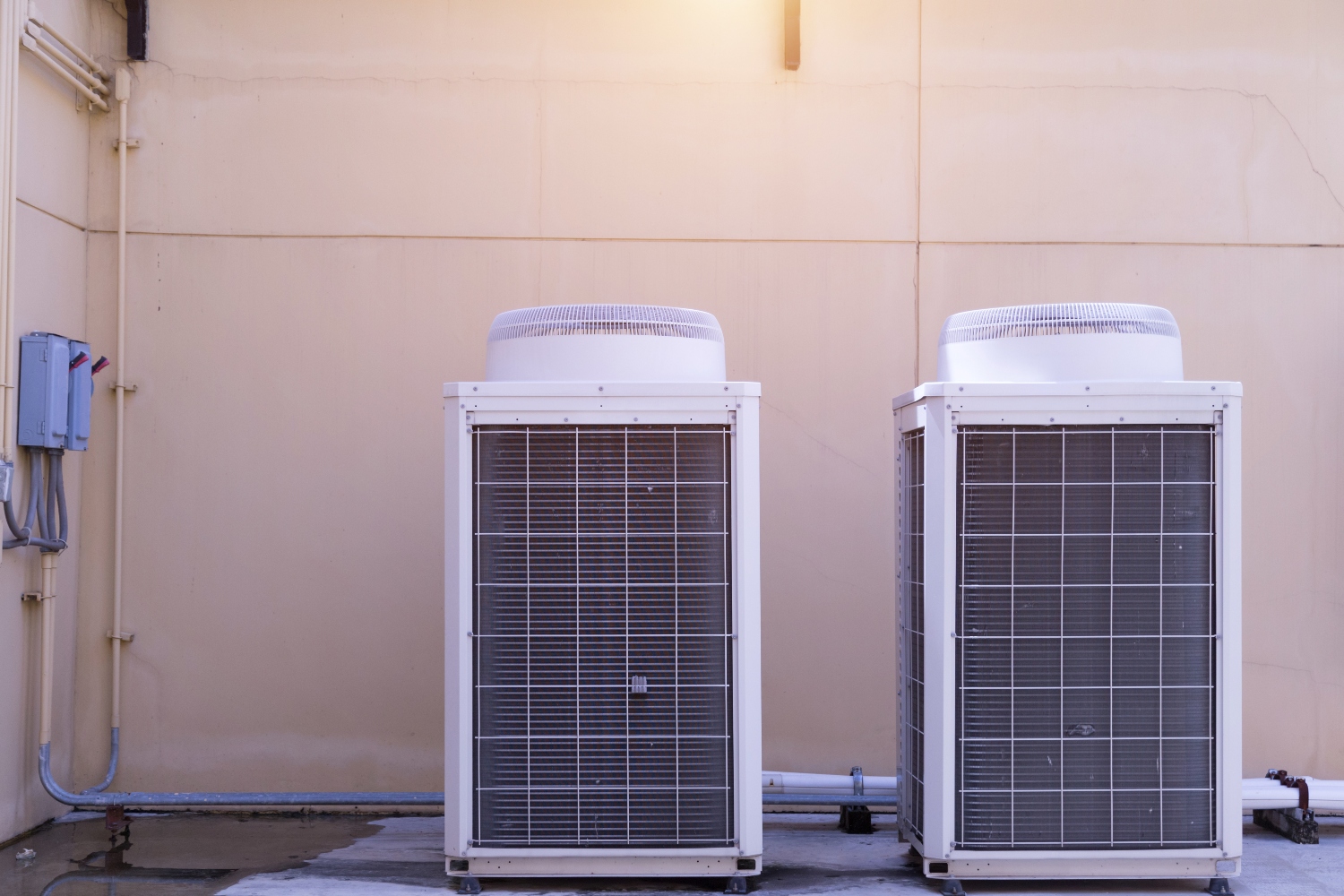
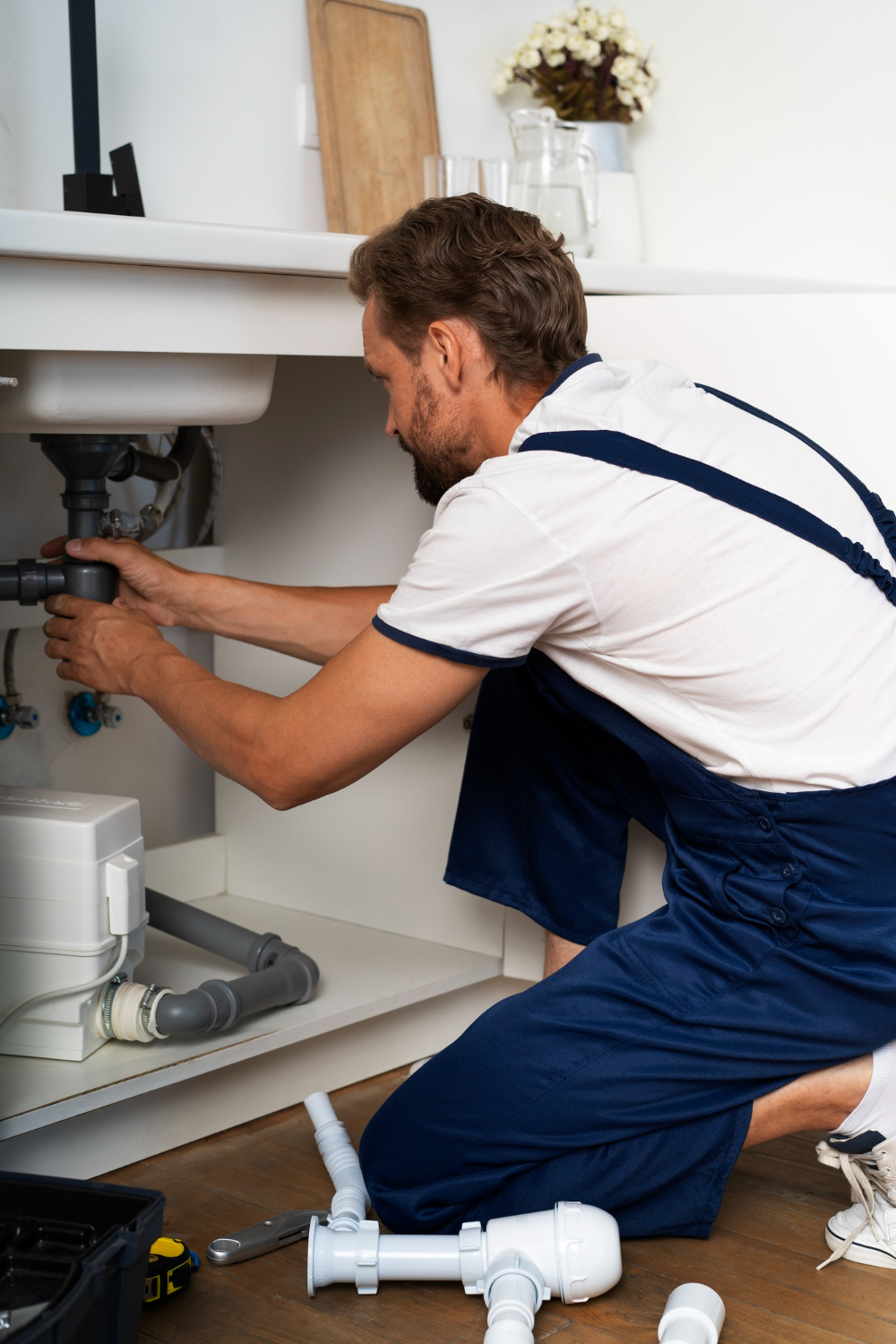
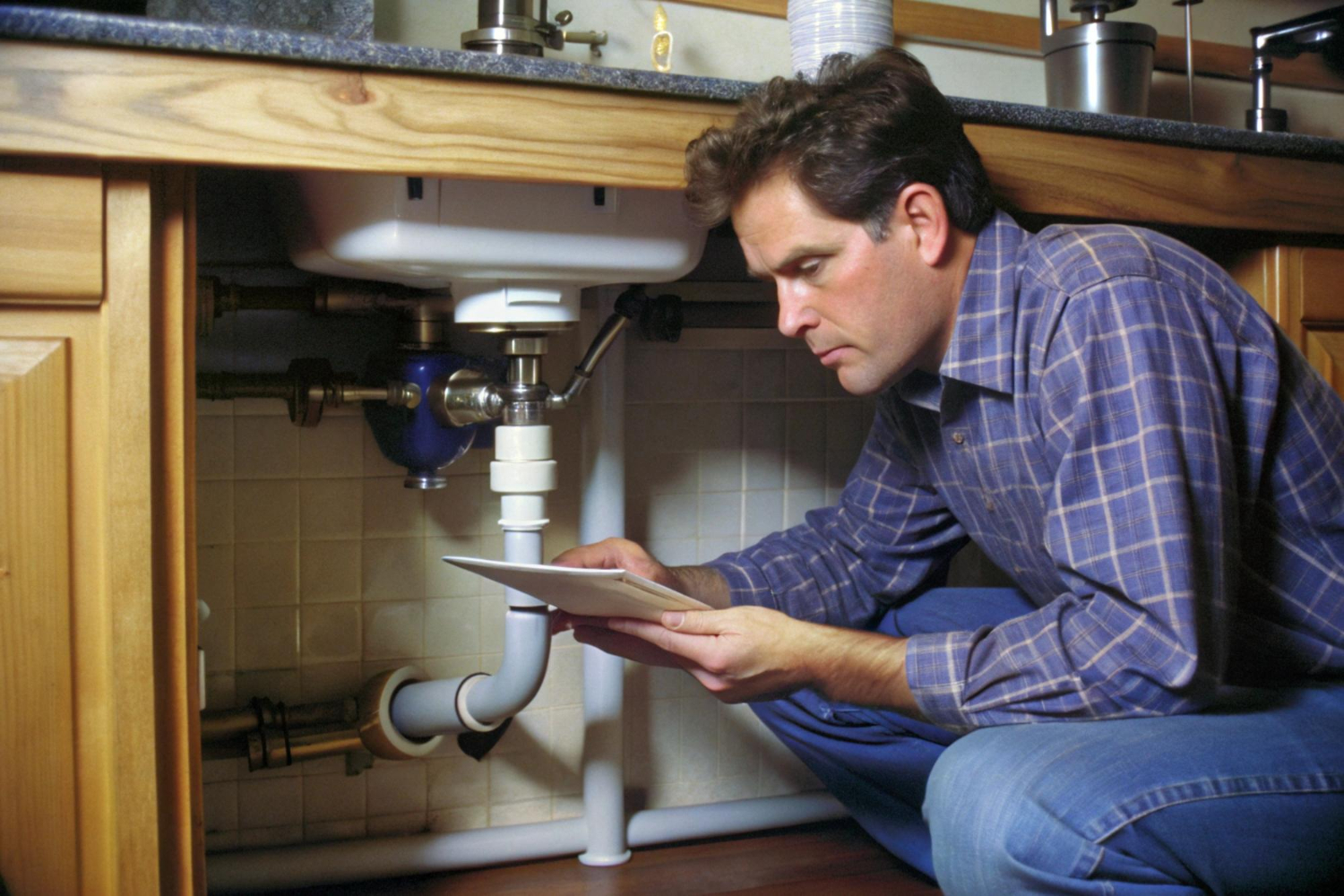
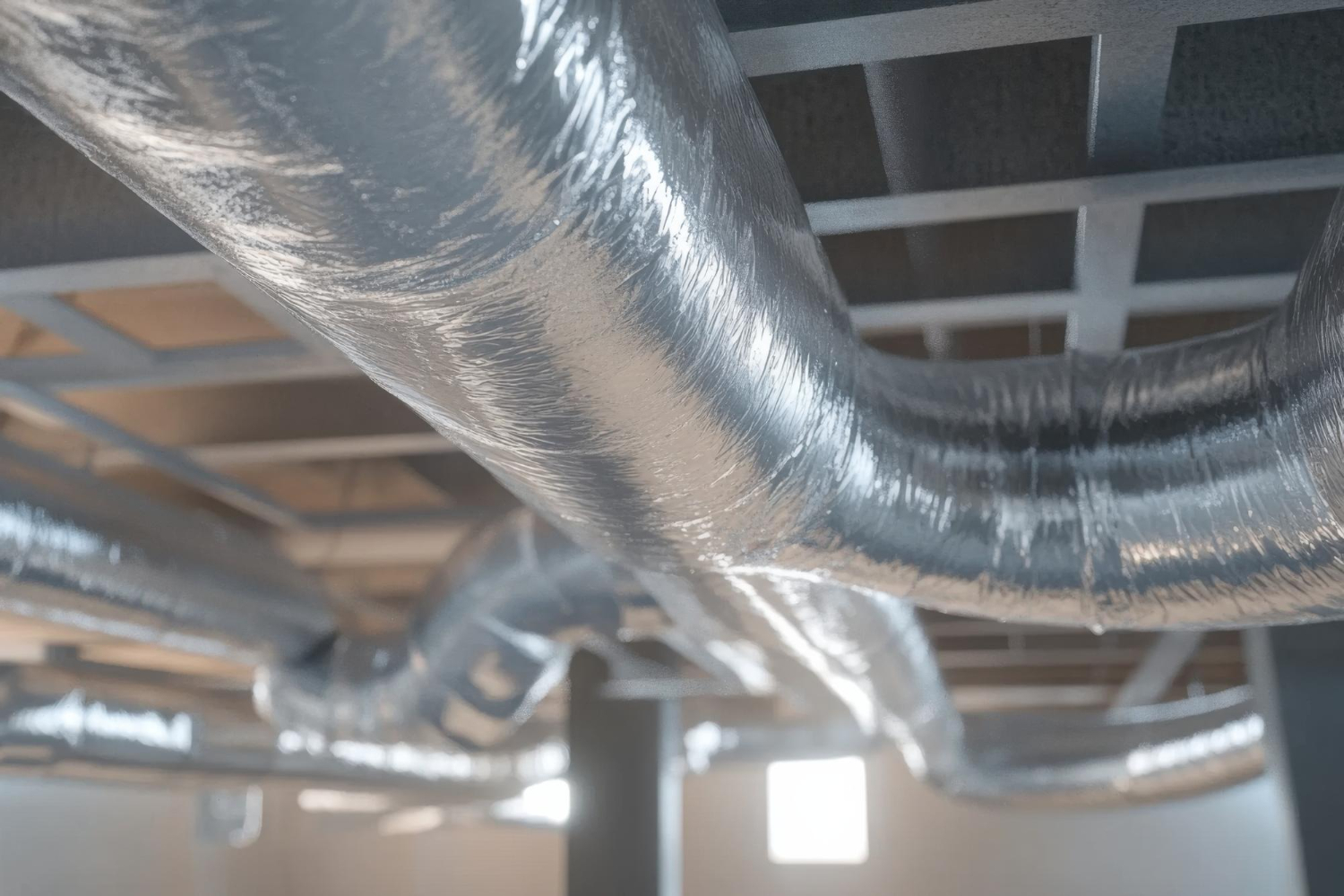
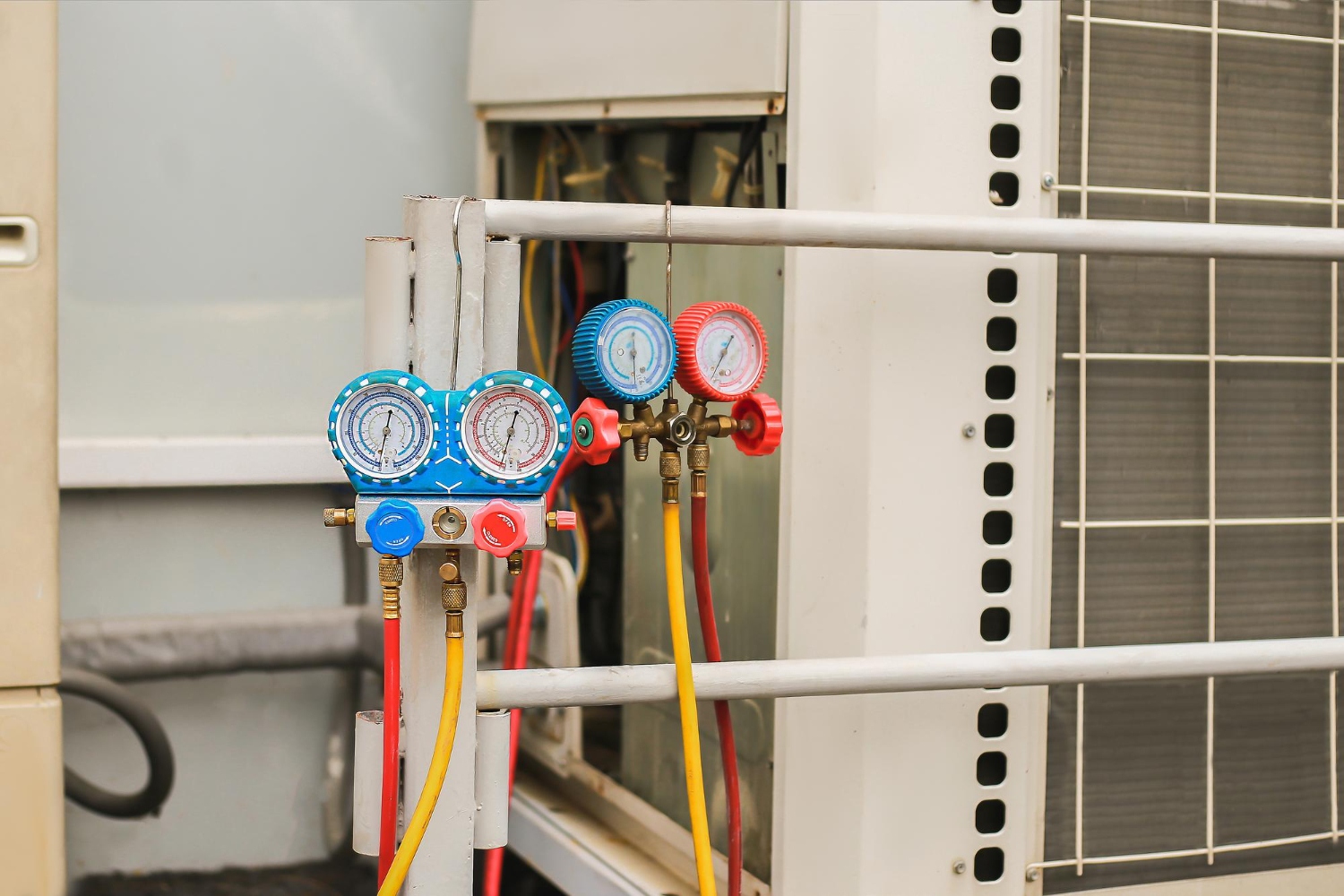
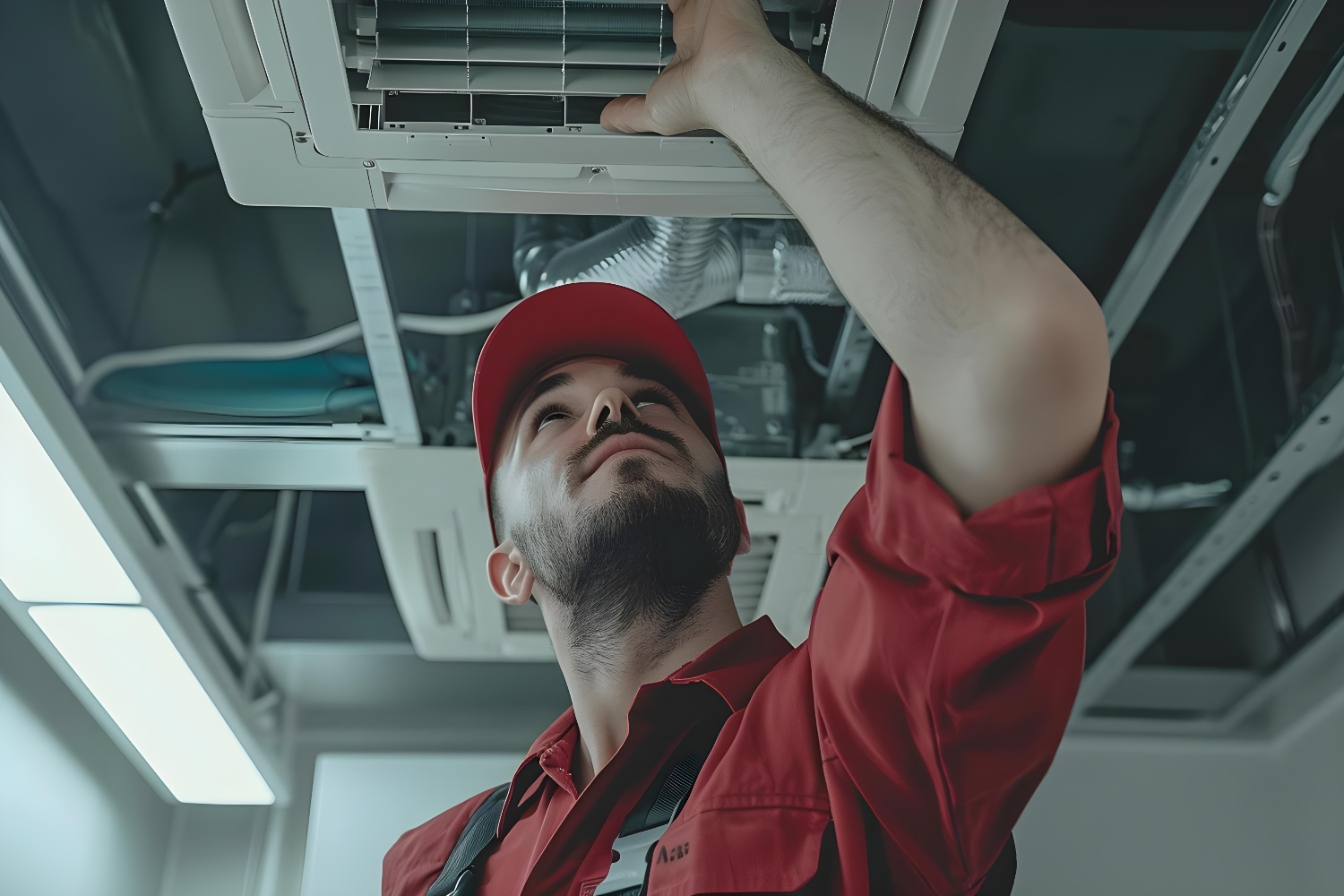
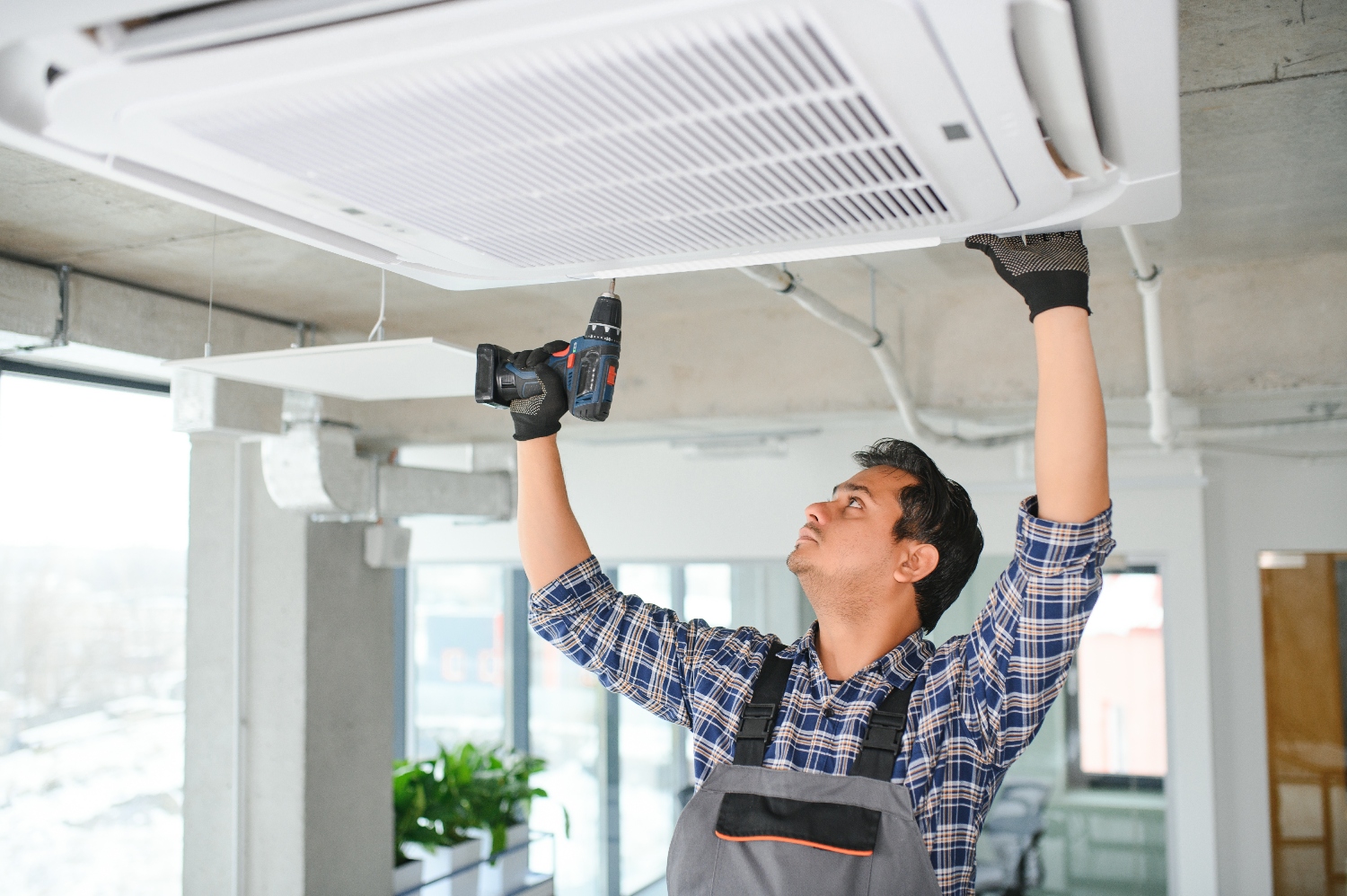
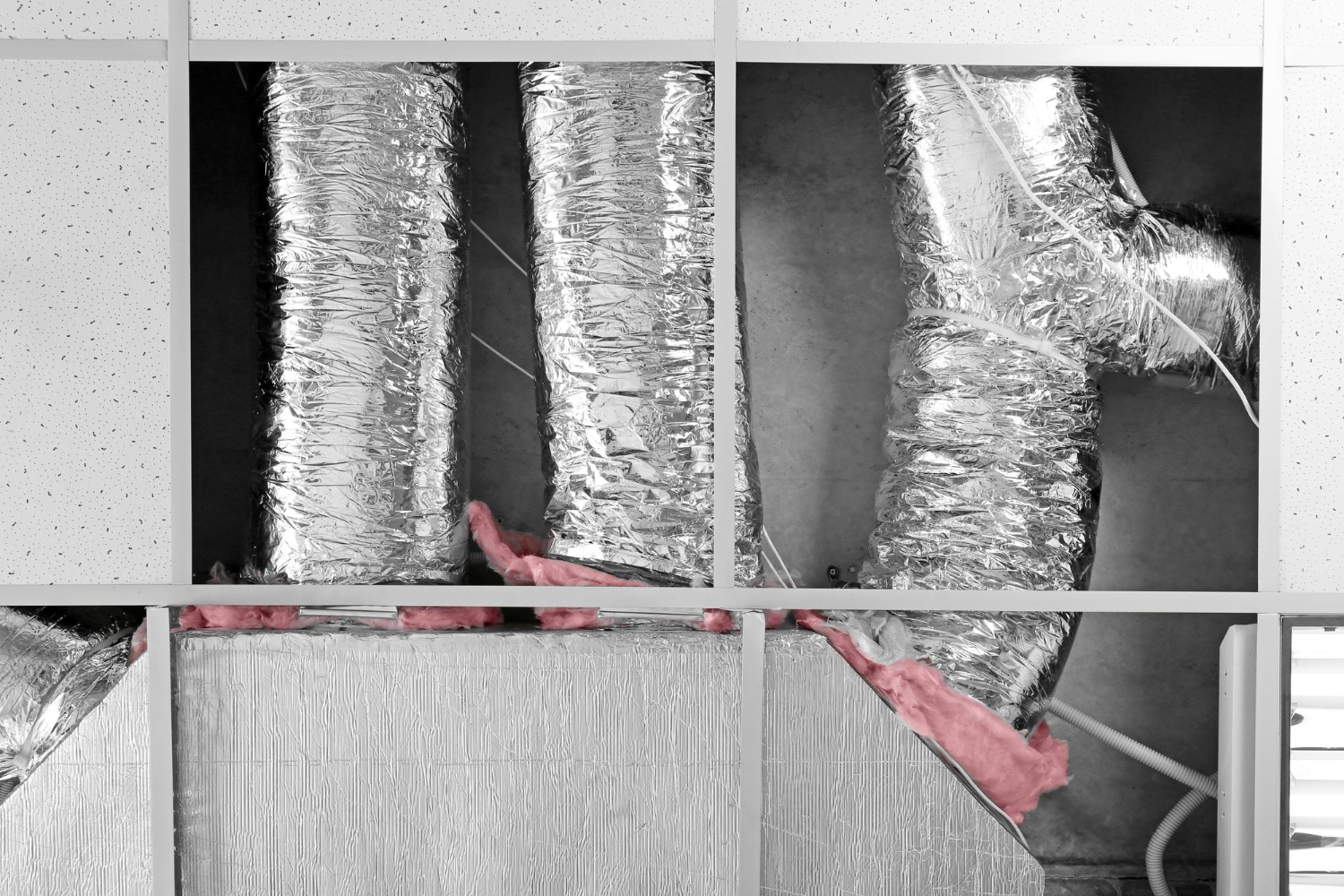































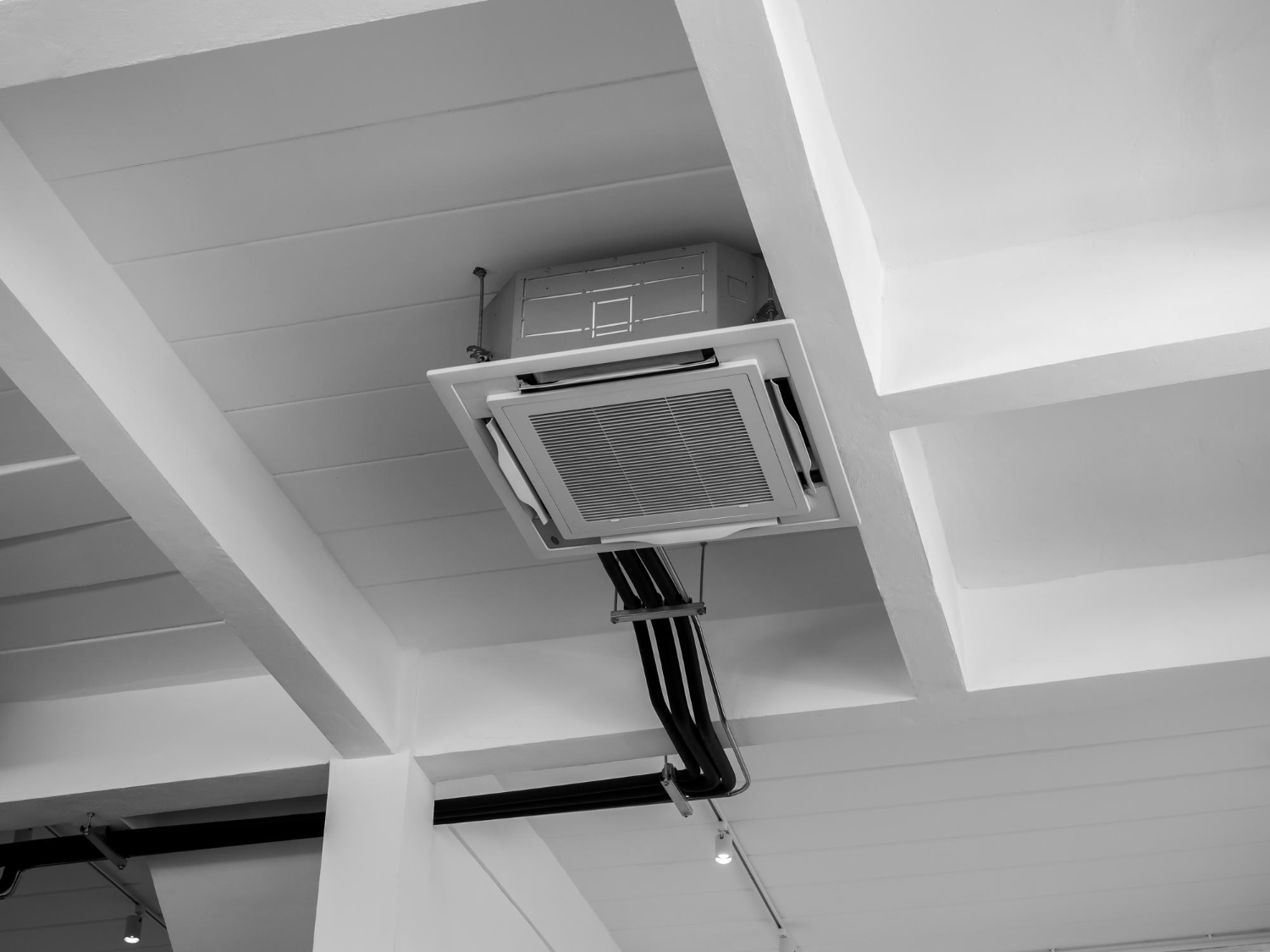




























.jpg)
.jpg)

.jpg)
.jpg)




















